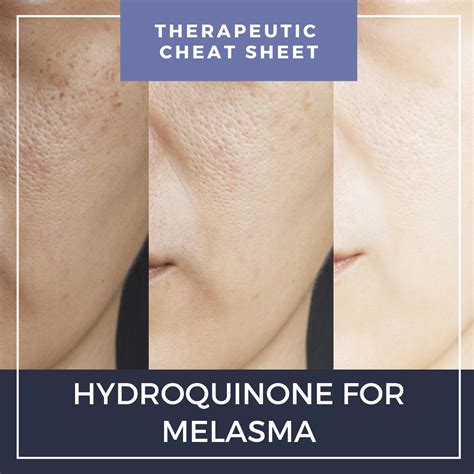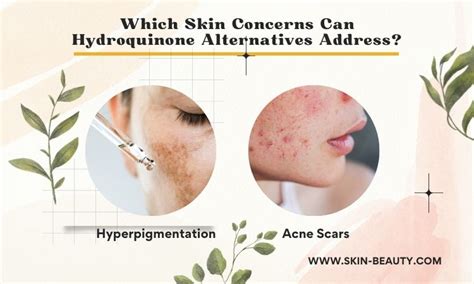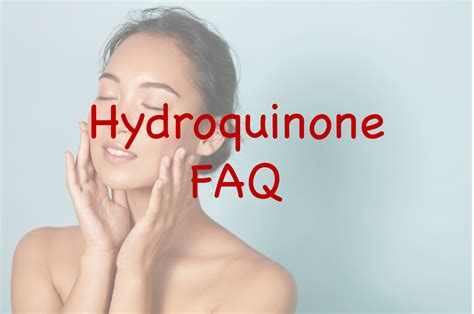Intro
Discover what hydroquinone is, a skin-lightening agent reducing melanin, hyperpigmentation, and dark spots, with uses in dermatology and cosmetics for a brighter complexion.
Hydroquinone is a chemical compound that has been widely used in various industries, including skincare, haircare, and pharmaceuticals. It is a derivative of benzene and is known for its ability to inhibit the production of melanin, the pigment responsible for skin color. Hydroquinone is commonly used to treat hyperpigmentation, a condition characterized by the appearance of dark spots or patches on the skin. It is also used as a skin-lightening agent, although its use for this purpose has been controversial due to concerns over its safety and potential side effects.
The importance of understanding hydroquinone cannot be overstated, as it has been a topic of much debate in recent years. While it has been used for decades to treat various skin conditions, its use has been linked to several health concerns, including cancer, skin irritation, and ochronosis, a condition characterized by the deposition of blue-black pigments in the skin. As a result, many countries have banned the use of hydroquinone in over-the-counter skincare products, and its use is now heavily regulated.
Despite the controversy surrounding hydroquinone, it remains a widely used ingredient in many skincare products, including creams, serums, and lotions. Its ability to inhibit melanin production makes it an effective treatment for hyperpigmentation, and it is often used in combination with other ingredients, such as retinoids and vitamin C, to enhance its effectiveness. However, its use requires caution, and individuals who are considering using hydroquinone-based products should be aware of the potential risks and side effects associated with its use.
What is Hydroquinone Used For?

Hydroquinone is used to treat a variety of skin conditions, including hyperpigmentation, melasma, and freckles. It works by inhibiting the production of melanin, which is the pigment responsible for skin color. By reducing melanin production, hydroquinone can help to lighten areas of the skin that are affected by hyperpigmentation, resulting in a more even skin tone. Hydroquinone is also used as a skin-lightening agent, although its use for this purpose is not without controversy.
In addition to its use in skincare products, hydroquinone is also used in haircare products, such as hair dyes and bleaches. It is used to lighten hair color and to remove unwanted hair color. Hydroquinone is also used in pharmaceuticals, such as creams and ointments, to treat various skin conditions, including eczema and psoriasis.
Benefits of Hydroquinone
The benefits of hydroquinone are numerous, and it has been shown to be an effective treatment for hyperpigmentation and other skin conditions. Some of the benefits of hydroquinone include:- Reduces the appearance of dark spots and hyperpigmentation
- Lightens skin tone and evens out skin color
- Inhibits the production of melanin, which can help to prevent further hyperpigmentation
- Can be used to treat a variety of skin conditions, including melasma, freckles, and age spots
- Is available in a variety of forms, including creams, serums, and lotions
However, it is essential to note that hydroquinone is not without its risks and side effects. Its use has been linked to several health concerns, including cancer, skin irritation, and ochronosis. As a result, individuals who are considering using hydroquinone-based products should be aware of the potential risks and side effects associated with its use.
How Does Hydroquinone Work?

Hydroquinone works by inhibiting the production of melanin, which is the pigment responsible for skin color. It does this by blocking the activity of the enzyme tyrosinase, which is responsible for converting the amino acid tyrosine into melanin. By blocking tyrosinase, hydroquinone reduces the amount of melanin produced, resulting in a lighter skin tone.
Hydroquinone also has antioxidant properties, which can help to protect the skin from damage caused by free radicals. Free radicals are unstable molecules that can cause damage to skin cells, leading to signs of aging such as wrinkles and fine lines. By reducing the amount of free radicals in the skin, hydroquinone can help to prevent further damage and promote healthier-looking skin.
Risks and Side Effects of Hydroquinone
While hydroquinone can be an effective treatment for hyperpigmentation and other skin conditions, its use is not without risks and side effects. Some of the potential risks and side effects associated with hydroquinone include:- Skin irritation, including redness, itching, and burning
- Ochronosis, a condition characterized by the deposition of blue-black pigments in the skin
- Cancer, as hydroquinone has been linked to an increased risk of certain types of cancer
- Exogenous ochronosis, a condition characterized by the deposition of yellow or brown pigments in the skin
- Photosensitivity, which can increase the risk of sunburn and skin damage
It is essential to note that the risks and side effects associated with hydroquinone can be minimized by using it as directed and under the supervision of a healthcare professional. Individuals who are considering using hydroquinone-based products should be aware of the potential risks and side effects and take steps to minimize them.
Alternatives to Hydroquinone

While hydroquinone can be an effective treatment for hyperpigmentation and other skin conditions, its use is not without controversy. As a result, many individuals are seeking alternatives to hydroquinone that are safer and more effective. Some of the alternatives to hydroquinone include:
- Retinoids, which are derived from vitamin A and can help to reduce the appearance of fine lines and wrinkles
- Vitamin C, which is an antioxidant that can help to protect the skin from damage caused by free radicals
- Niacinamide, which is a form of vitamin B3 that can help to improve skin elasticity and reduce inflammation
- Azelaic acid, which is a natural ingredient that can help to reduce the appearance of acne and hyperpigmentation
- Kojic acid, which is a natural ingredient that can help to reduce the appearance of hyperpigmentation and acne
These alternatives to hydroquinone can be effective in treating hyperpigmentation and other skin conditions, and they are often considered safer and more natural than hydroquinone.
Precautions and Warnings
While hydroquinone can be an effective treatment for hyperpigmentation and other skin conditions, its use requires caution. Individuals who are considering using hydroquinone-based products should be aware of the potential risks and side effects and take steps to minimize them. Some of the precautions and warnings associated with hydroquinone include:- Use as directed, and under the supervision of a healthcare professional
- Avoid using hydroquinone on broken or irritated skin
- Avoid using hydroquinone in combination with other skincare products that contain retinoids or alpha-hydroxy acids
- Use sunscreen with a high SPF to protect the skin from damage caused by the sun
- Avoid using hydroquinone during pregnancy or breastfeeding, as its safety has not been established
By taking these precautions and warnings into account, individuals can minimize the risks and side effects associated with hydroquinone and ensure safe and effective use.
FAQs

What is hydroquinone used for?
+Hydroquinone is used to treat hyperpigmentation, melasma, and freckles. It is also used as a skin-lightening agent.
How does hydroquinone work?
+Hydroquinone works by inhibiting the production of melanin, which is the pigment responsible for skin color.
What are the risks and side effects of hydroquinone?
+The risks and side effects of hydroquinone include skin irritation, ochronosis, cancer, exogenous ochronosis, and photosensitivity.
In conclusion, hydroquinone is a widely used ingredient in skincare products that can be effective in treating hyperpigmentation and other skin conditions. However, its use is not without controversy, and individuals who are considering using hydroquinone-based products should be aware of the potential risks and side effects. By taking the necessary precautions and warnings into account, individuals can minimize the risks and side effects associated with hydroquinone and ensure safe and effective use. We invite you to share your thoughts and experiences with hydroquinone in the comments below, and to share this article with others who may be interested in learning more about this topic.
